Western Voice Actor SungWon ‘ProZD’ Cho Unhappy Reaping What He Sowed, Complains That Industry Is Now Segregating Roles By Race
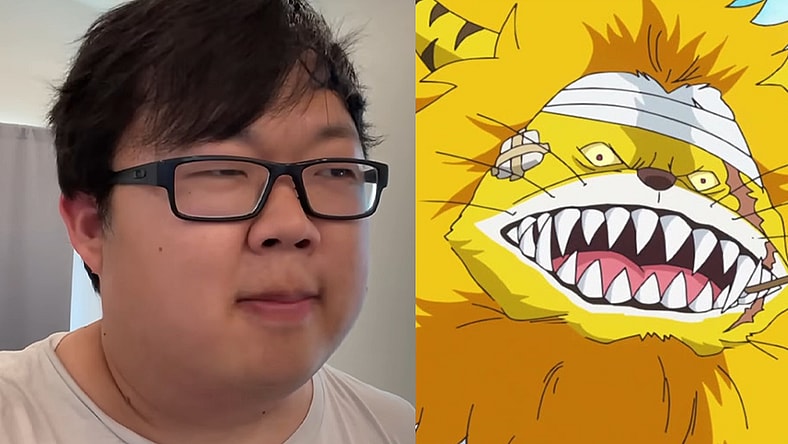
In yet another instance of identity politicians being scorned by the very ideology they promote, after having himself championed such ‘authentic casting’ practices, English-language voice actor SungWon ‘ProZD’ Cho has now found himself offended by the Western entertainment industry’s turn towards racially segregating their available roles.
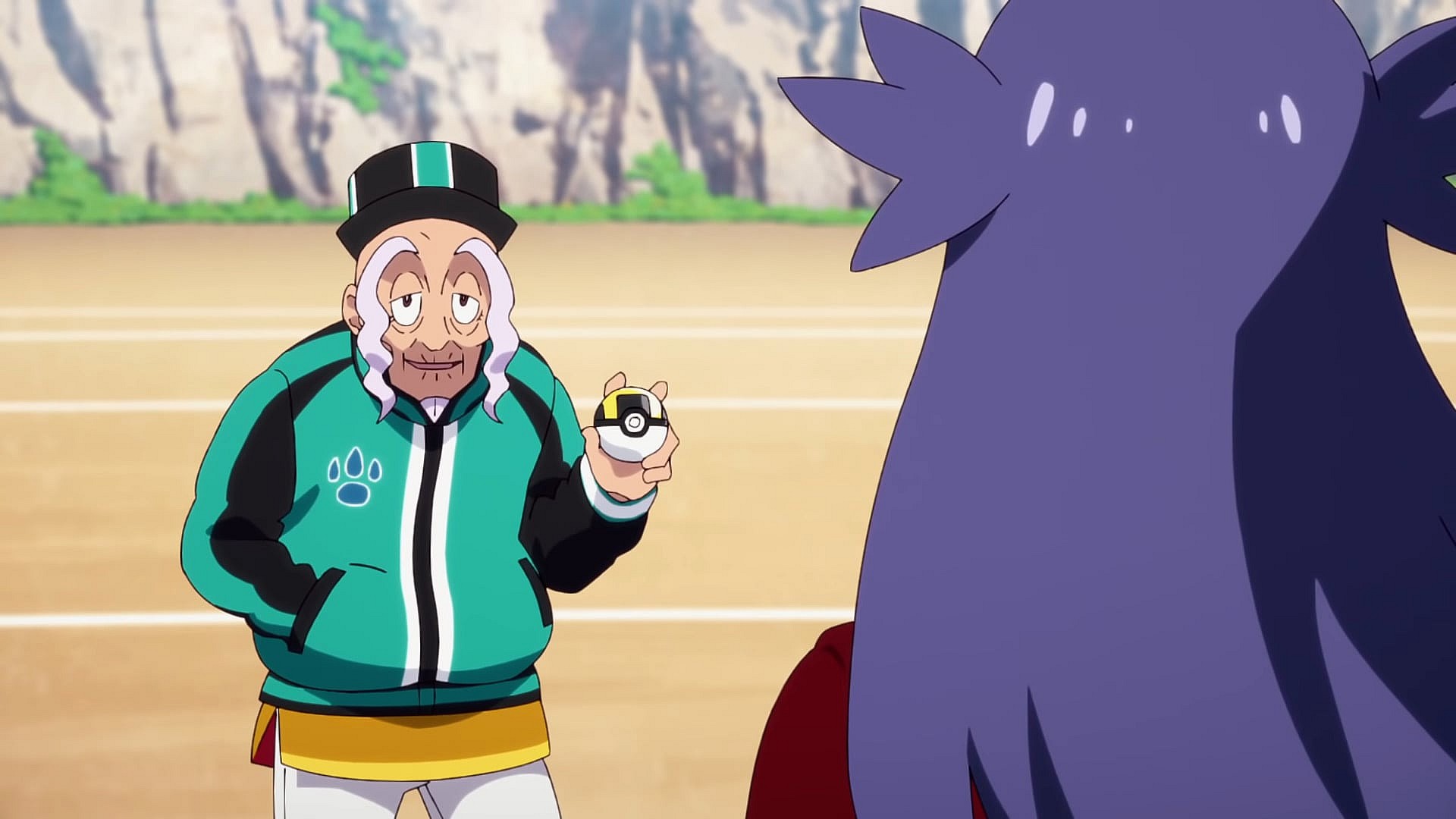
Cho, otherwise known by his online handle ‘ProZD’ as well as for performing in such notable roles as One Piece‘s Nekomamushi and God of War Ragnarök‘s Ratatoskr, expressed his frustrations towards this rising trend via a now-deleted Twitter thread originally shared to his personal account on October 23rd.
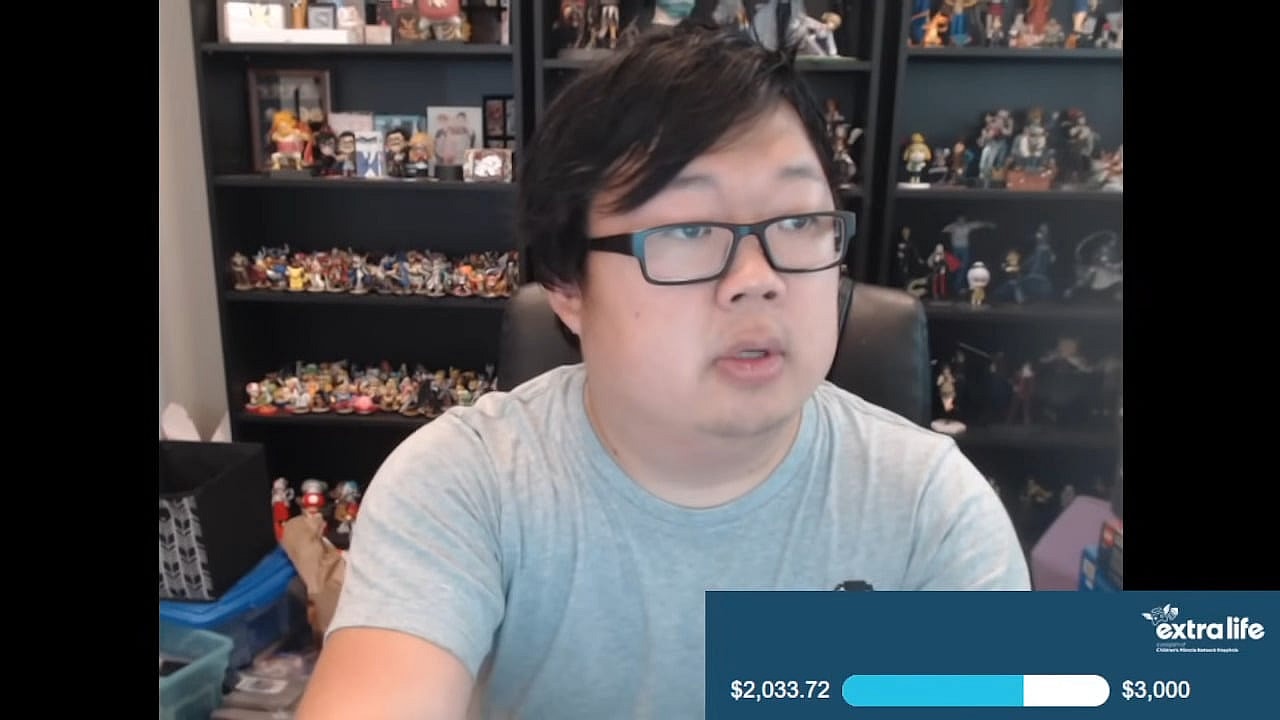
Beginning his thoughts, Cho recalled, “I got an audition for [Prominent Cartoon] where I was sent just the Asian character. Looking through the rest, I told my agent ‘Hey, I’m happy to read for this, but can I…read for some of these others?’, to which I was tol,d ‘All of those characters are drawn as White, so no’.”
“To add extra insult to injury, the character I got sent was labeled ‘Middle Eastern, South, East, or Southeast Asian,’ because you know…that’s all the same, right?” continued the English voice of Holst in Fire Emblem Warriors: Three Hopes. “You can just lump them all into one. My agent told me that this is just how some Major Studios are doing things now.”
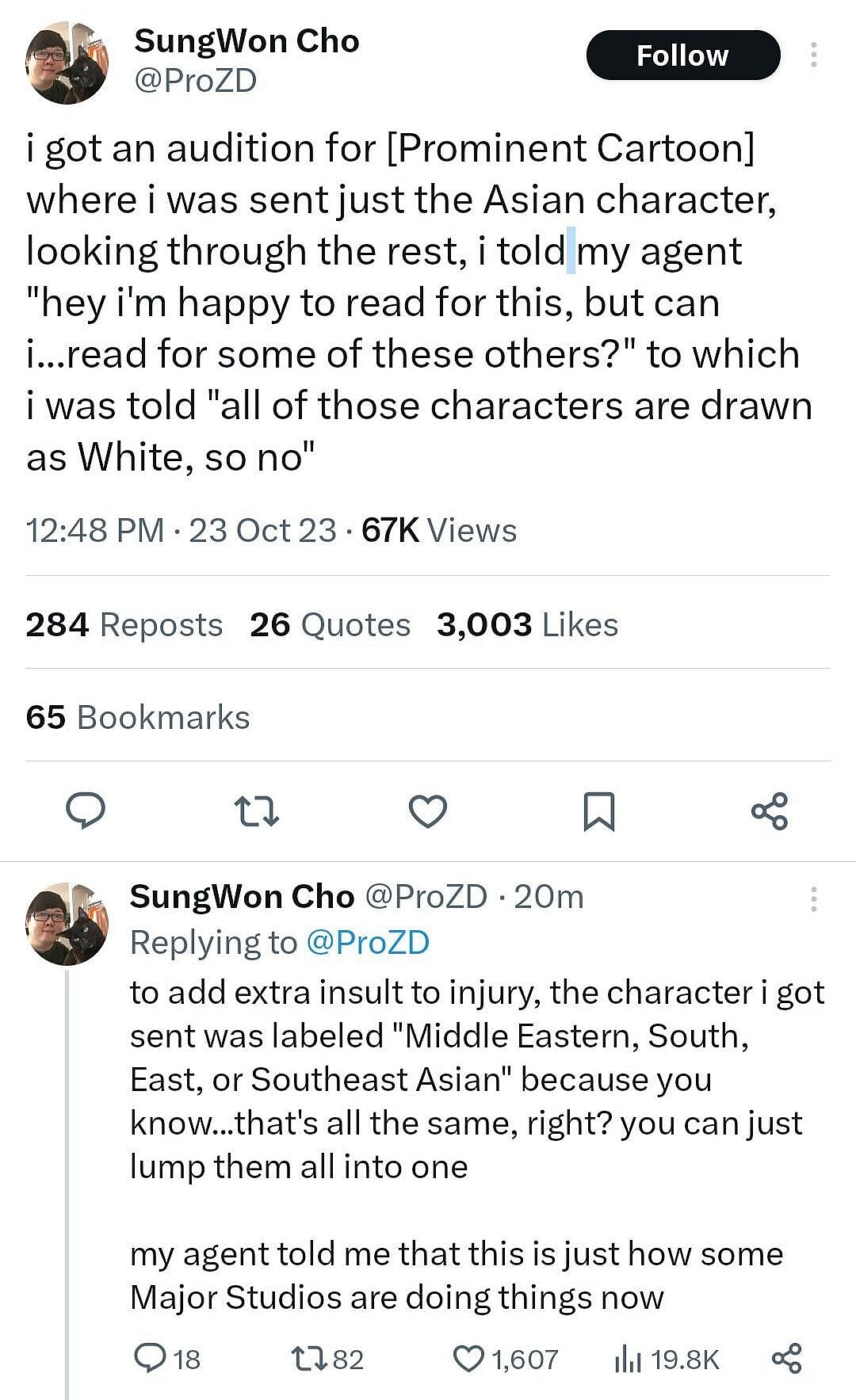
Attempting to head off his critics, Cho then argued, “Naysayers will go ‘OH DON’T YOU WANT AUTHENTIC CASTING???’ [but] if your entire main cast is all White and you have one token side character who can apparently just be any type of Asian ever, this is not a level playing field.”
Turning to a different production, the voice actor further noted, “This is not new, for another show recently with a large cast of characters, I was only sent the audition sides for the character who…exclusively speaks Mandarian.”

“I don’t speak Mandarian,” said Cho. “It’s demoralizing and as much as I love voiceover, the future looks bleaker every day.”
Ultimately, Cho concluded his thread by clarifying, “to be clear, this was not my agent’s decision, they have sent me plenty of white characters before and have been nothing but supportive. This is what they were told by the people in charage of casting that show.”
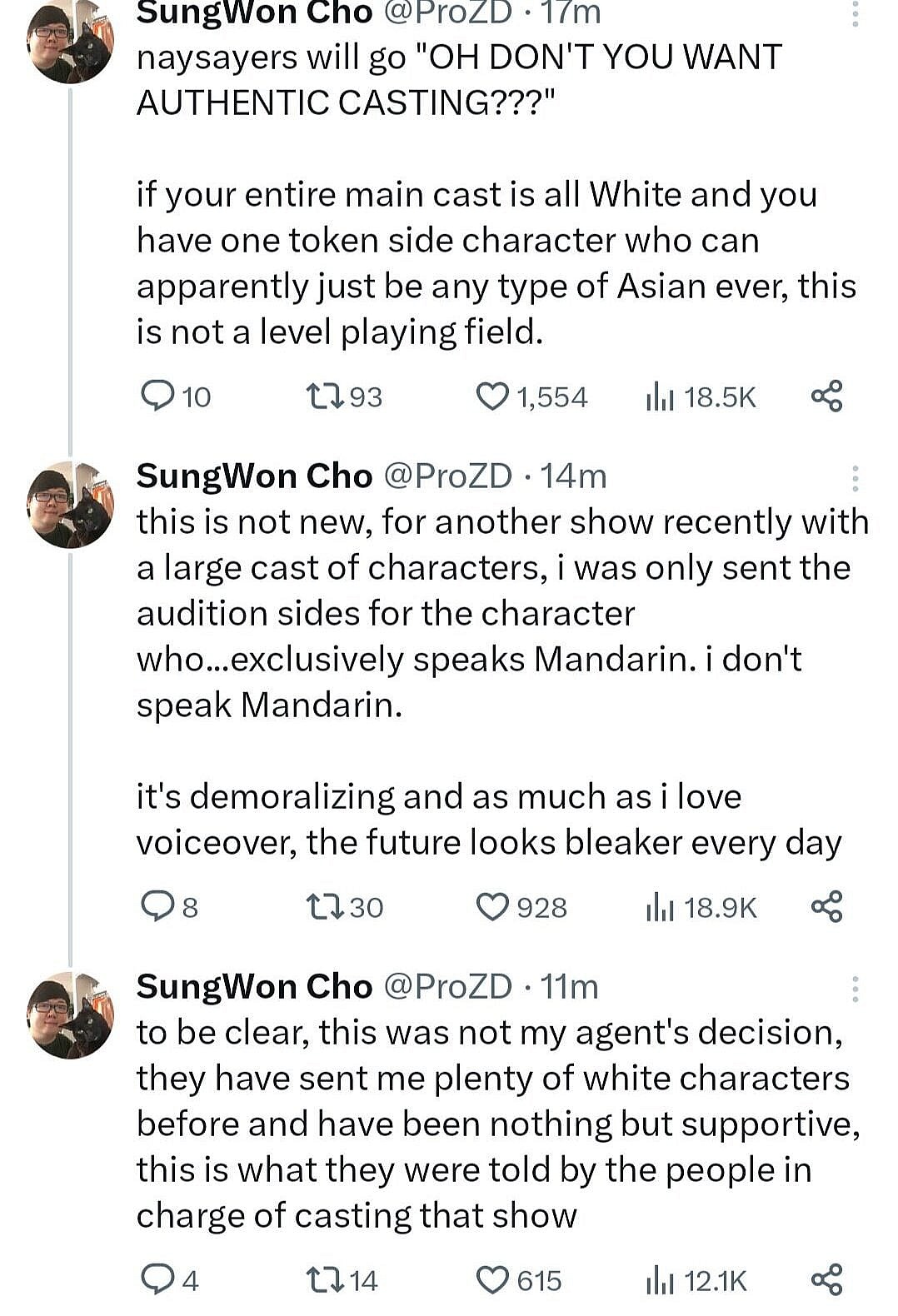
Unfortunately for Cho, while he may finally be seeing the very obvious downsides to making every single topic of discussion in life about race, as noted above, he was not an unwilling participant in the industry’s adoption of its current casting philosophy.
Asked during a May 2nd appearance on film critic Korey Coleman’s Double Toasted Interviews podcast if he felt “like more opportunities would be open to you if you were, you know, a white male?”, the Korean voice actor affirmed, “I definitely would have more opportunities if I were white, for sure, there’s no doubt about that, but I think there have been changes in a positive way.”
[Time Stamp: 24:39]
“And not just for, you know, Asians, but for all different races, different genders,” he continued. “There have been steps and it has been improving. I mean, even comparing now to like, let’s say 10 or you know five years ago, it’s definitely changed.”
“Like I think studios are much more aware of ‘Hey, we should, you know, cast authentically,’ Cho then opined to his host. “So, there have been some good steps, but we still have a long way to go and I’m just hoping that, as time goes on, more and more doors will open for you know, diverse talent.”
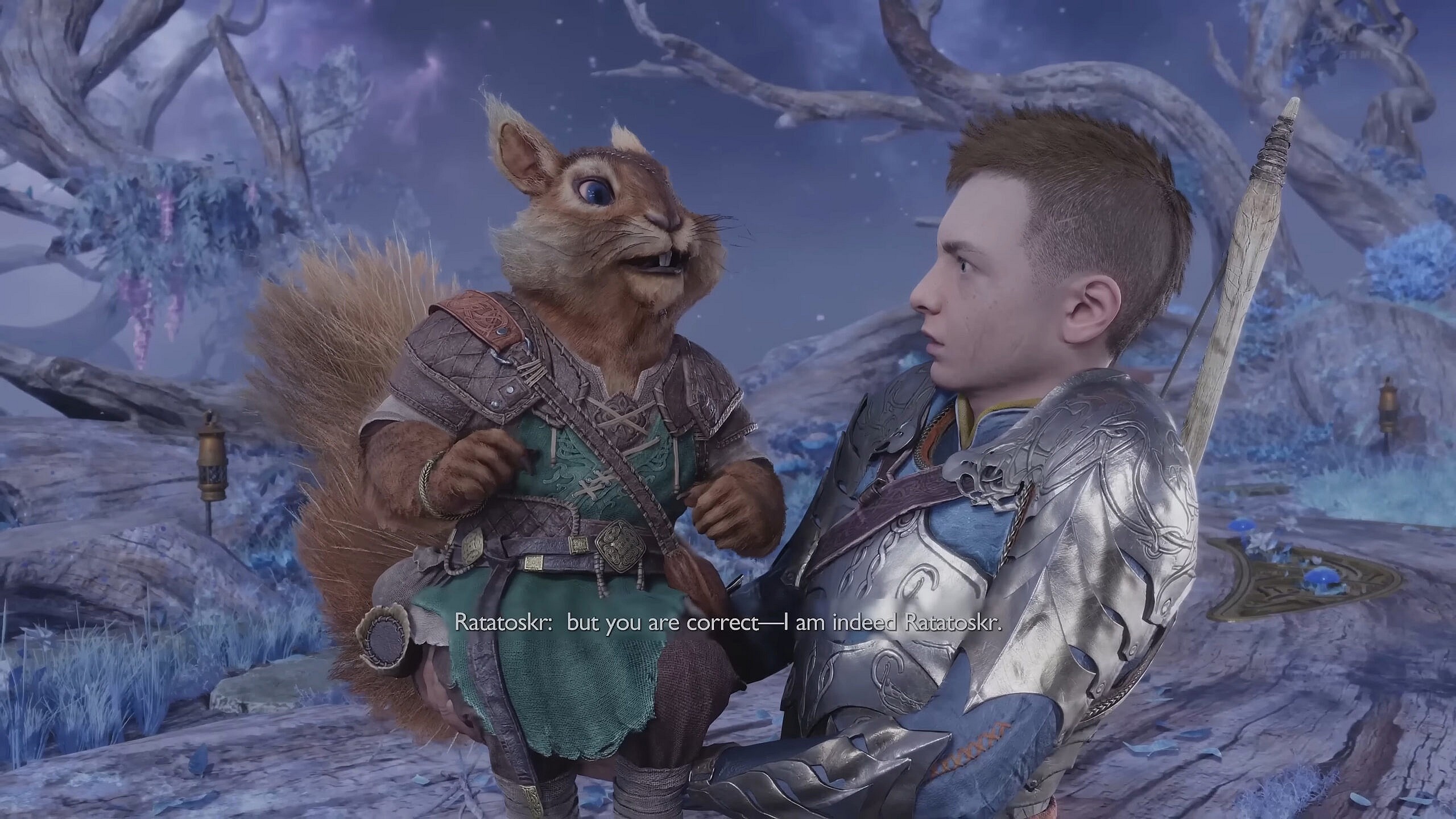
As to Cho’s complaint about various Asian ethniticites being lumped into one general casting group, while it is admittedly a tone-deaf move by studios, it is also an unfortunate result of the industry’s obsession with race.
With many productions, particularly anime that take place in fictional settings, characters are often depicted with non-white and non-black skin tones. However, given that these settings feature no real-world analogues, casting directors are left to try and ‘authentically’ cast such roles based on what little information is available to them, with often amounts to little more than ‘they are vaguely brown skinned.’

As such, with this middling-skin-tone range ruling out explicitly white and black actors, casting directors have no choice but to open up a given role of ‘vaguely brown character’ to actors who can themselves best be described as ‘vaguely brown’.
Is it a great system? Absolutely not. In fact, as Cho has discovered, it’s inherently racist. But unfortunately, it’s the one that many in the industry have fought for, and thus the one we are all currently forced to reckon with.
